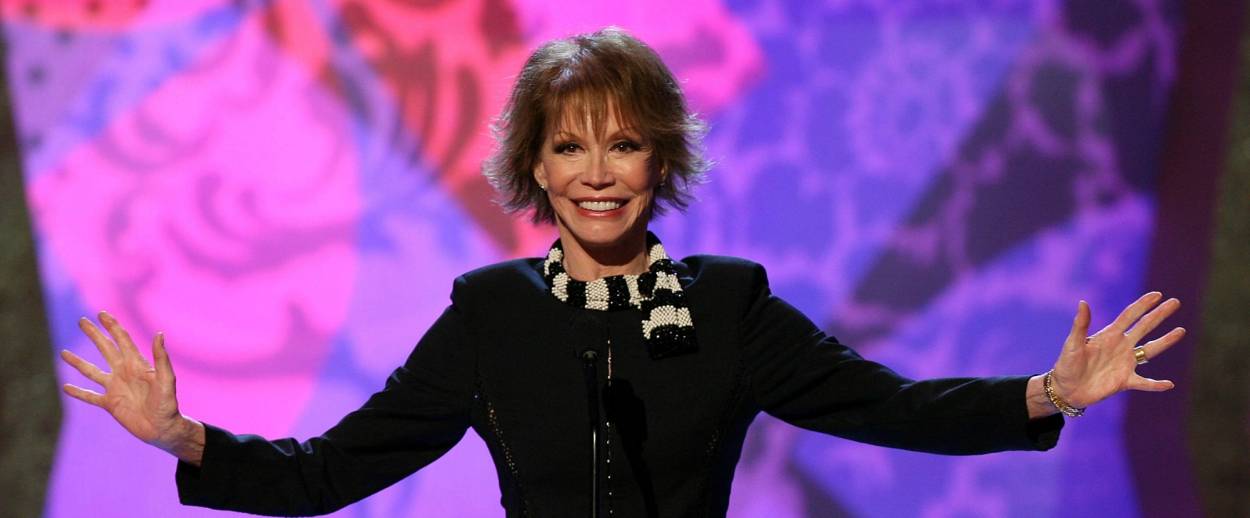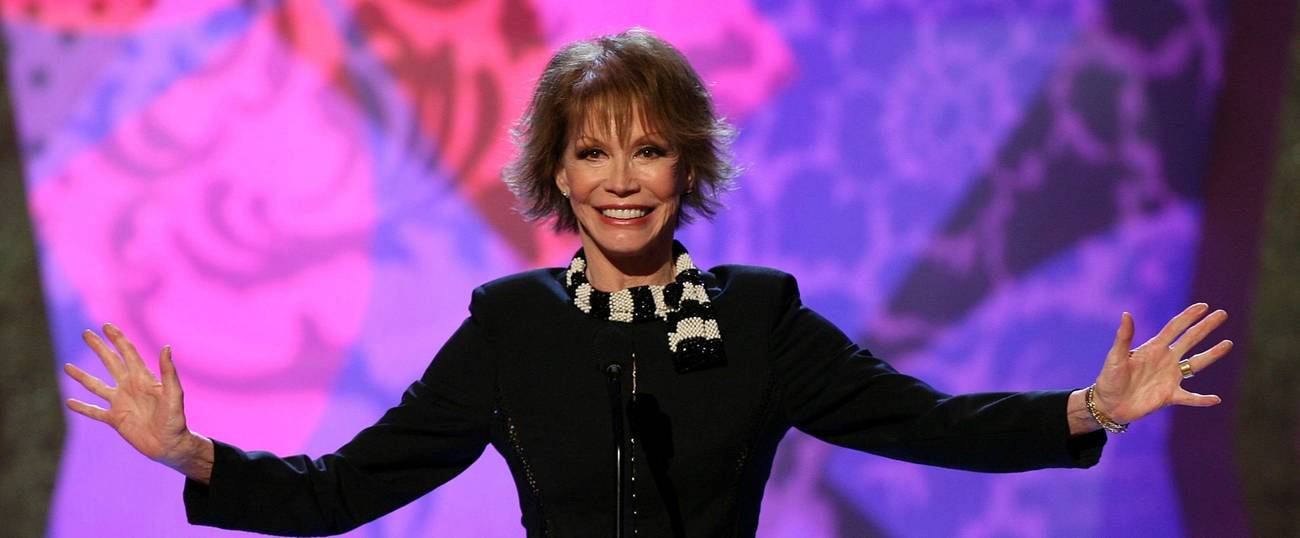Independent Woman
Why the death of Mary Tyler Moore—who portrayed an independent woman with a fulfilling life on her titular sitcom—matters now more than ever




The death of Mary Tyler Moore, a longtime sufferer of Type 1 diabetes, would have come as a major blow at any time, but it feels especially painful now—and not just because hers is one of the first major celebrity deaths of 2017 (itself a year on the heels of another that was notoriously rife with them). Moore’s death at the age of 80 has arrived in our lives at a time when everything Moore stood as our most convincing avatar—female liberation, equality, and autonomy—seems to be imperiled.
At the dawning of women’s liberation, Mary Tyler Moore, on her namesake sitcom, embodied a certain kind of ambitious, single career woman making it on her own, focused on her own goals and independence. While the show mined her bad dates for comedy, whether or not Mary Richards found a boyfriend was never the focus, and honestly, beside the point: She had a great job, a nice apartment, hilarious and irritating friends and colleagues, and an exciting fulfilling life. The Mary Tyler Moore Show wasn’t about a woman who was “trying” (with all the sad failure that implies) to have it all; it was about a woman who already did.
Now, millions of women have (with “spunk” to spare, to quote the great Lou Grant) taken to the streets to protest our new president’s narrow, reactionary vision that would send them more than half a century into the past. Back to a time when a woman had no greater purpose in life than smiling indulgently when one of her entitled male children did something silly or destructive (i.e. the June Cleaver model of parenthood). Mary Richards’ vision of fulfilled urban womanhood seems more sadly elusive than ever. Forty years later, we haven’t quite made it after all—at least, not as far as we thought.
But Mary Richards had something else that has been sorely lacking in the public discourse of late: civility. Mary, for all her ambition and ability, was never brassy (like her wisecracking friend Rhoda Morgenstern, the epitome of the New York Jew), or bitchy (like her landlady Phyllis Lindstrom.) Mary was brave and assertive (when she could bring herself to be) and stood up for herself, but she was nice. She was kind. She cared about others. She was a true Midwestern mensch in the best sense of the world. The world, forever turned on by her smile, would be a much better place with more women like her. Now we’ll have to make it without her.
Previous: Rhoda: ‘I Have Cancer’
Rachel Shukert is the author of the memoirs Have You No Shame? and Everything Is Going To Be Great,and the novel Starstruck. She is the creator of the Netflix show The Baby-Sitters Club, and a writer on such series as GLOW and Supergirl. Her Twitter feed is @rachelshukert.